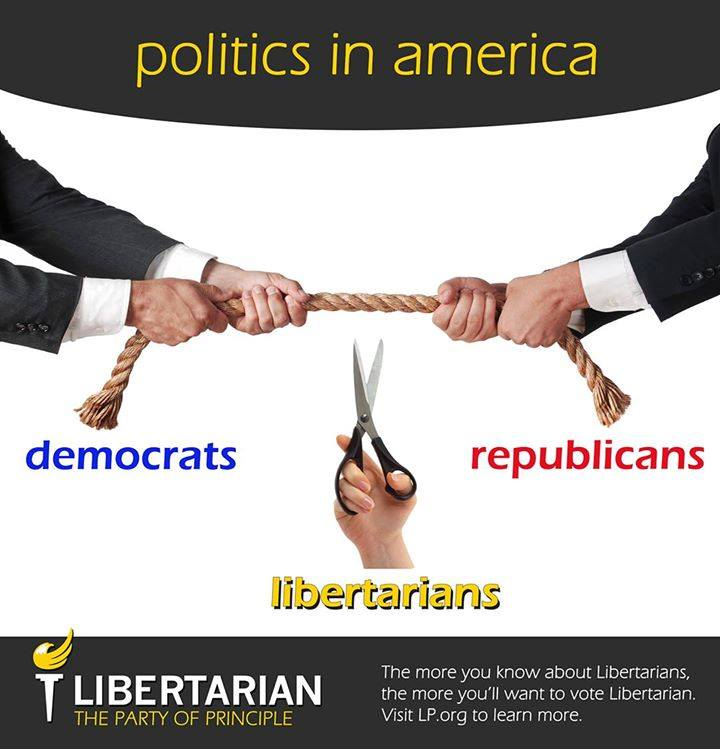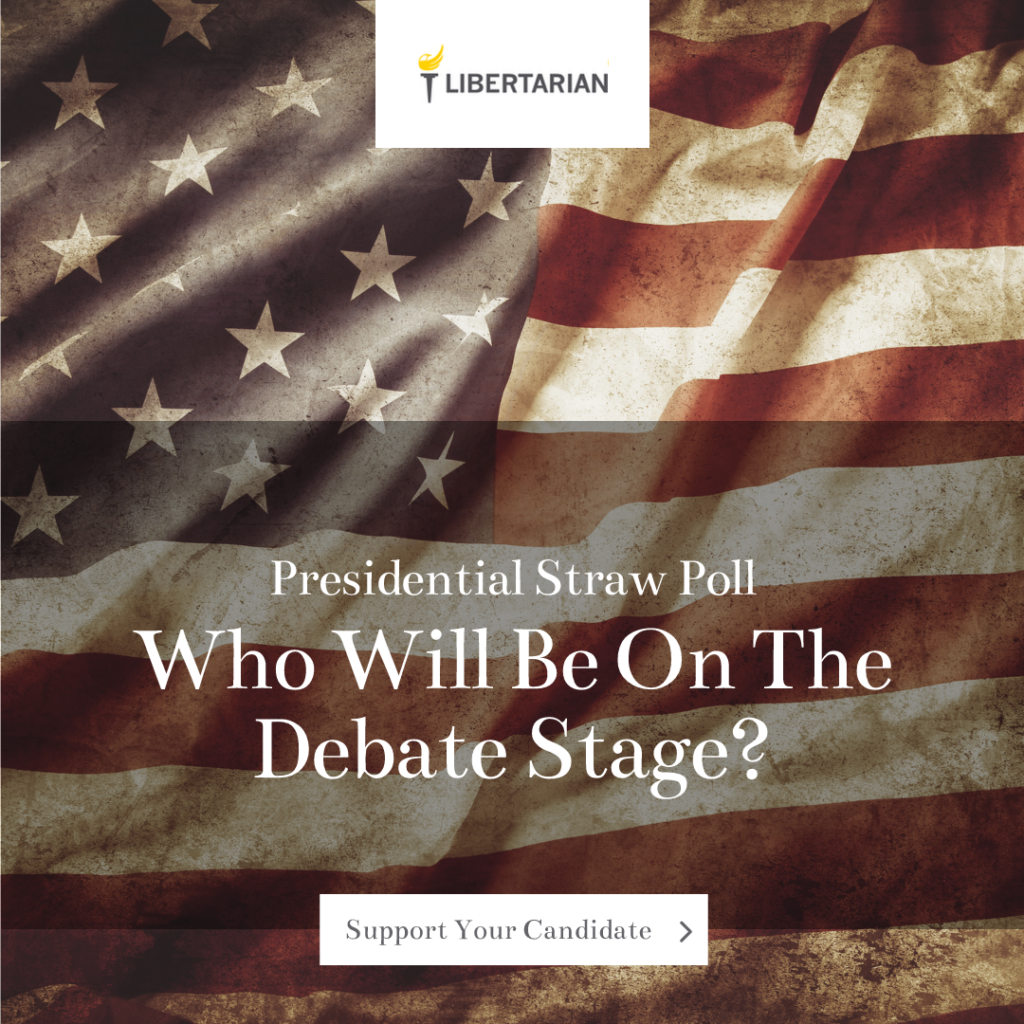
Opposition in an election affects far more than just vote totals. Candidates react to each other and their messaging changes to capture voter interest. Over and over, electoral races that include a strong Libertarian campaign have proven to move the rhetoric of both Democratic and Republican candidates in a more Libertarian direction. As Republicans worry that a Libertarian candidate will siphon away fiscally responsible votes, Democrats also worry that a Libertarian candidate will attract socially tolerant and accepting votes. Both sides tend to claim that Libertarians are “spoilers,” especially when their vote total exceeds the margin of difference between the others.
“Do I intend to spoil the election for them?” asked Lucy Brenton, the Libertarian Party candidate for U.S. Senate from Indiana. “Absolutely, and here’s why: something doesn’t spoil unless it’s rotten.” Her Republican opponent, Mike Braun, eked out a mere 51.6 percent of the vote in his victory, so it doesn’t look like Brenton’s 4 percent of the vote spoiled the election for Braun.
Other Republicans and Democrats were not so lucky. In West Virginia, Democratic incumbent Joe Manchin squeaked to re-election with 49.5 percent of the vote. His Republican opponent, Patrick Morrisey, received 46.3 percent. If Morrisey could have somehow picked up Libertarian candidate Rusty Hollen’s 4.2 percent of the vote, it would have put him over the top.
In Montana Democratic incumbent, Jon Tester hung on to his office with 49.6 percent of the vote. Libertarian candidate Rick Breckenridge received 2.9 percent of the vote, despite being widely misquoted in the media as having endorsed Republican opponent Matt Rosendale, who received 47.5 percent. Had Rosendale been more appealing to Libertarians, he could have won.
Libertarians also held the balance of power in two House races. In North Carolina U.S. House District 9, Republican candidate Mark Harris received 49.4 percent of the vote, compared to his Democratic opponent Dan McCready’s 48.8 percent. Libertarian candidate Jeff Scott covered the difference with his 1.8 percent. In Texas U.S. House District 23, Republican Will Hurd received 49.2 percent of the vote, prevailing over the 48.7 percent netted by Democrat Gina Ortiz Jones. Libertarian Ruben Corvalan got 2.1 percent, more than enough to have put Jones in the winner’s circle if she had attracted those votes herself.
In Wisconsin, Republican Gov. Scott Walker could have won re-election if he had also received the votes given to Libertarian candidate Phil Anderson and libertarian-leaning independent Maggie Turnbull. The first priority on Turnbull’s website is rhetoric that many Libertarians would find agreeable: “Fiscal responsibility, a balanced budget, and a legislative process that is based on productive discussion, respect for diverse viewpoints, and a willingness to create policies that have support from many sectors.” Turnbull’s running mate, Wil Losch, founded one of Wisconsin’s longest-running charter schools. The Democratic winner of Wisconsin’s gubernatorial race, Tony Evers, barely won with 49.6 percent to Walker’s 48.4 percent. Anderson’s 0.8 percent and Turnbull’s 0.7 percent more than covered the spread between them.
“Many Libertarians don’t take an interest in politics,” said Libertarian National Committee Executive Director Wes Benedict. “Sometimes, though, politics takes an interest in us. Like most Americans, Libertarians believe that we shouldn’t harm others, steal from them, or cheat them. Unfortunately, some voters are comfortable with politicians and bureaucrats using force, taxing our earnings and misleading the public if it is done to advance their own particular moral viewpoints.”
When Libertarians entice Republican and Democratic candidates to take a more Libertarian view on policy, that’s a type of victory.
“Social conservatives are willing to use government power to force everybody else to adopt their moral views about sexual mores, drug use, and obscenity,” Benedict said. “Egalitarians are willing to use government to force their way into everybody else’s pocketbooks as they chase a fantasy of income equality through redistribution. People with strong concerns for safety and security are willing to use government to enact unnecessary and costly safety regulations and national defense measures. We undoubtedly moved Republicans and Democrats alike to co-opt some of our policy positions in order to avoid losing votes to us.”
Still, though, moving the needle in political rhetoric is no substitute for electing the real thing. Nationwide, 186 Libertarians held public office before the election. Voters elected 16 Libertarians on Nov. 6. Together, they demonstrate how elected officials can shrink government power rather than continually expanding it to serve their own pet causes.



